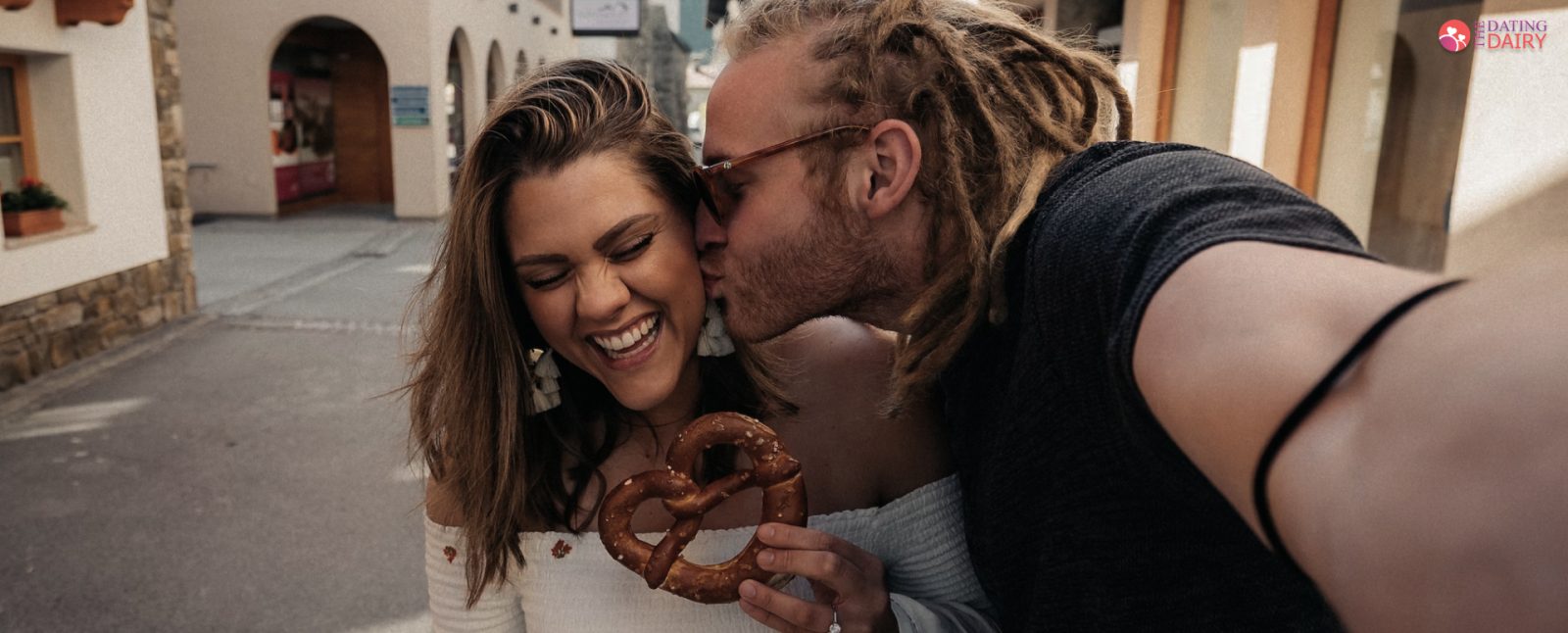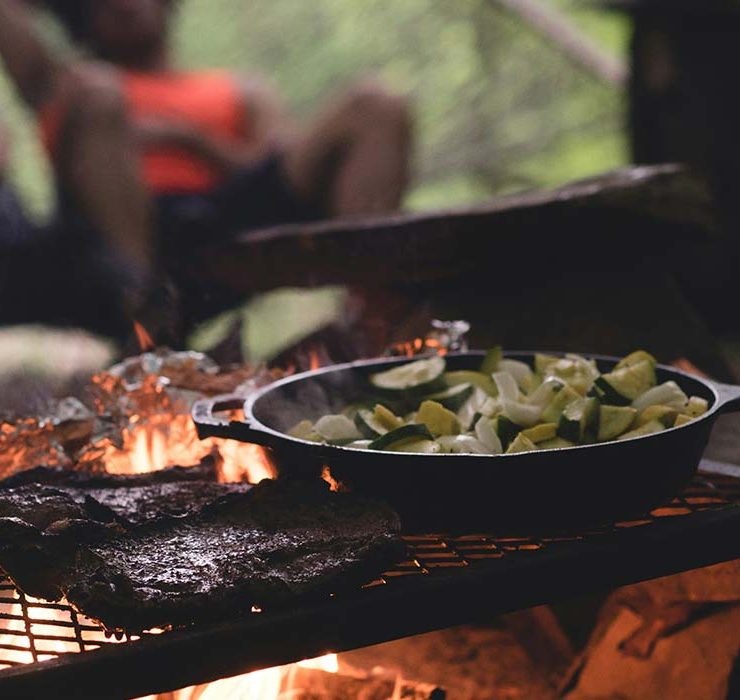The past few years have seen several sinister dating trends coming our way. There was delicate dumping, the trend that saw people effectively pulling away from their partner so that their partner ended up dumping them, and they could escape scot-free.
There was zombieing, a combination of ghosting first and making a reappearance later. Also There was micro-cheating, a trend that saw us casually slipping into that hot guy’s DMs.
Currently, there is another trend that has been doing the rounds for some time now: Vulturing!
Vulturing is not really a very pleasant experience. Just like the name implies, vulturing refers to a potential partner hovering around you like a vulture while you are going through a break-up, swooping in to claim the prize(NOTE: Prize = You) when the time is right.
Uggh! And this dating trend is very difficult to spot, especially when you are right in the middle of it. Today, let’s talk about vulturing – stay tuned to find out why vulturing happens and how to spot it for yourself.
So, What Is Vulturing?
No one wants to be attacked by a vulture – not even metaphorically.

Vulturing in the world of dating refers to a situation where you are going through a breakup, and a potential partner hovers around you, typically waiting to swoop in when you are very vulnerable. It is completely predatory behavior where someone is taking advantage of your emotional vulnerability after a tragic breakup.
Dating vultures will usually try to get close to you during the breakup, often offering a shoulder to cry on and other types of emotional support. After the breakup, these vultures try to leverage the emotional connection they have built with you over time, using it to take advantage of your weakened state.
The Psychological Impact Of Vulturing:
Being a dating vultures’ victim can have a severe psychological impact on you. You are not only going through a break up, but you are also being exploited emotionally by someone you thought you could trust blindly.

When someone pursues you by exploiting your emotional vulnerability after a breakup, it is considered to be very damaging to your mental health. Vulturing happens in subtle, manipulative ways. As a result, it is quite hard to spot.
After getting vultured, it can be difficult to trust potential suitors. It is also possible you might end up reading too much into their motives. You might find yourself putting up emotional barriers to simply protect yourself from being taken advantage of again. This can make it really hard for you to form meaningful relationships.
Find yourself pushing away genuine people with genuine intentions, thereby missing out on potentially meaningful relationships.
It can also make it harder for you to move on from your former relationship. It is very important that you actually go through the breakup and experience the emotions that come with it. And to do so, you will need space.
Vulturing not only detracts you from this space but also prevents healing actively by adding to your emotional conflict.
TikTok Can Teach You So Much About Vulturing:
There is literally no one better than TikTok to teach you about this latest toxic dating trend – Vulturing! There are so many people on the platform talking about it.

One user pointed out that vultures can actually pop out in multiple situations – they do not just crave for intimacy but can be anything else as well. Vultures can also use their victims for money or any other prize, for that matter. The user further mentioned that it is better to stay away from people who give out vulture energy.
Interestingly, another TikTok user talked about the obvious link between narcissists and vultures. Narcissists are just like vultures, swooping in with support and help when, in reality, they just want to pick the meat off their victim’s bones. It is likely that a majority of vultures are also narcissists.
One TikTok user even called himself a food vulture, explaining that he is really nice to people who cannot finish their food so that he gets to eat their leftovers.
Why Is Vulturing Toxic?
To start with, vulturing employs the age-old tactics of offering a shoulder to cry on and taking advantage of the victim’s emotional vulnerability to weasel into their life when the time is just right.

Now, don’t get us wrong here. Of course, you can date someone who has been there for you through a tough time in your life – someone who was your shoulder to cry on, someone who gave you emotional support.
When anyone is emotionally vulnerable and trying to deal with conflict, they are more susceptible to making mistakes. Call it an impulse, or say it was in the heat of the moment, the thing is, they end up doing something they would later regret. If someone genuinely cares about you and has been supporting you emotionally while you are going through turmoil, they will definitely try to stop you from doing something regrettable.
But, on the other hand, if the person has been preying on you, chances are they will let you make those mistakes and take advantage of your emotional vulnerability. This is probably the worst thing about Vulturing – it operates on the basis of gaining a person’s trust only to betray them by taking advantage of their emotions.
How To Spot A Vulture?
As we just said, it can be hard to identify a vulture, especially if the breakup has not entirely taken place.

But here are 5 red flags that you need to watch out for if you suspect that you are being vultured.
1. They Monitor Your Emotional State Closely:
Vultures tend to pay close attention to your emotional state, trying to find out exactly how vulnerable you are at that point in time. If they ask you deep questions about your love life and relationships without showing any interest in your whole life beyond those, then chances are you are being vultured.
It can be difficult to make a distinction between a vulture’s manipulative moves and someone’s sincere concern. But listen to intuition and let your gut guide you.
2. They Are Always Keen To Offer Support And Comfort:
Offering support and comfort is one of the methods vultures will use to build an emotional connection with you, only to exploit the same connection later. While vultures might seem sweet and helpful initially, they always tend to have an ulterior motive.
3. The Monitor Your Social Media:
The fact that vultures monitor their victims’ social media clearly indicates that they do have ulterior motives. They are just waiting for the right time to swoop in – usually, these people are the first ones to offer support when your relationship ends. Vultures will read your captions, analyze your stories, and stalk your feed, trying to figure out what’s going on.
4. They Somehow Become A Part Of Your Social Circle:
Vultures often hang around the social circle of their victims – it suddenly feels like they were always a part of your circle, and just like that, they become a part of your circle. This is how vultures position themselves as someone safe and familiar so that they can jump in quickly when the time is right.
5. They Push For Intimacy After The Break Up:
The clear science of a vulture actually comes out after the relationship with their victim ends. They simply swoop in, barely letting their victim Heal or even process the breakup. Instead, the push for intimacy targeted the victims’ emotional vulnerability at the time. This is a huge Red flag.
Are You Being Vultured? Here’s What To Do Next!
So, Do you think you are being vultured? Then what should you do next? Figuring out exactly what to do with the vulture can be difficult. Don’t forget vultures are manipulative, cunning, persistent, and, most importantly, completely ingrained in your social circle.

Firstly, always trust your intuition. If your gut says there is something wrong with this person’s intentions, then trust your instincts and move on.
Secondly, definitely set clear boundaries. Let the vulture know what you are precisely comfortable with and, more importantly, what you are not comfortable with. For instance, you can say that you are going through a break up, and it will take you time to heal – so it’s best not to engage in intimacy with another person.
It is also possible that you might be thinking about cutting off the vulture entirely from your life. In that case, trust your instincts as well and do what is right for you.
It is also important that you heal from the end of your past relationship. It will take you some time before you can trust someone else and build a meaningful connection again. Take some time to process what you went through and get back to life at your own pace.
Our Favorite Reddit Threads On Vulturing:
We found some true stories from victims of vulturing – of course, we went to Reddit, and after going through several accounts, here we go with our top three vulturing threads on Reddit.
- “There were several men I knew, who I thought of as friends, that came to me as soon as I got divorced. I learned these guys were never my friends and they aren’t good people. They were just waiting for the opportunity to take advantage.”
- “There must be some correlation between those who think they’re nice guys and vultures. Every vulture I’ve encountered has seen themselves as a supportive friend with great boundaries – until boundaries aren’t necessary, in their minds. I guess? If being a supportive friend is all about banking on the possibility of misfortune?!“
- “I broke an engagement with someone for good reason and the next day one of their friends (who was in a serious relationship with one of their other friends) messaged me on FB telling me how beautiful and amazing I was and asking me to send them a friend request (probably so they had deniability about approaching me if their partner found out). I did not send the friend request.”
Bonus Section: Famous Vultures (Fictional Edition)
While the term ‘vulturing’ is practically new, vultures have been around forever and have been depicted way too many times in pop culture.
For instance, remember The Vampire Diaries? Yes, Damon and Elena are an ideal couple. But technically, Elena was dating Damon’s brother, Stefan, in the earlier seasons. Demon was just there, one moment flirting with Elena, the next moment becoming her shoulder to cry on. So when Damon and Elena unite, it feels more predatory than sweet.
Another memorable fictional vulture is obviously Chuck Bass. Chuck and Blair literally do it for the first time right after Blair breaks up with Nate. Blair needed a shoulder to cry on that night, and Chuck did exactly that, only to take advantage of Blair’s vulnerability when they kissed and did so much more at the end of the night.
Vultures are all around us – you just have to spot them. It seems difficult at first, but you know what they say – practice always makes you perfect.
And It’s A Wrap!
Remember, it can take weeks, months, and sometimes even years to get over a breakup, especially if you were together with this person for a long period of time.
If you are going through a breakup and suspect that your shoulder to cry on has some ulterior motives, then do yourself a favor and cut that person off from your life. There is no point putting your faith in a vulture – a vulture is always predatory in nature.
So tell us what you think about vulturing? Have you ever been a victim of this toxic dating trend, or are you the Red flag? Feel free to share your thoughts, experiences, and, most importantly, stories about vulturing in the comments below.
Barsha Bhattacharya is a senior content writing executive. As a marketing enthusiast and professional for the past 4 years, writing is new to Barsha. And she is loving every bit of it. Her niches are marketing, lifestyle, wellness, travel and entertainment. Apart from writing, Barsha loves to travel, binge-watch, research conspiracy theories, Instagram and overthink.








